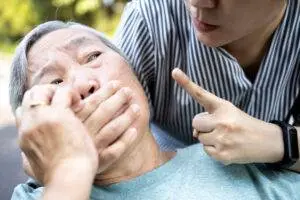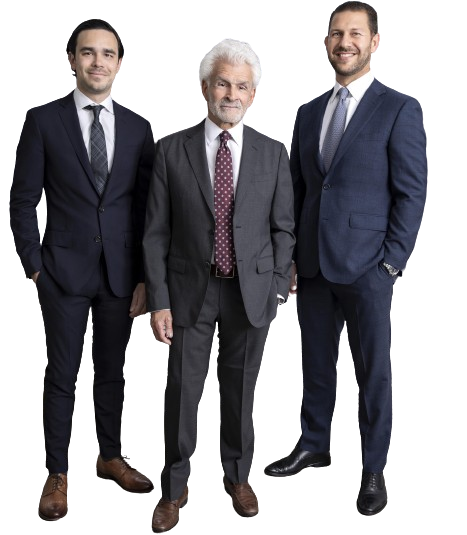
It’s estimated that roughly 1.5 million people reside in nursing homes in states across the U.S., with an additional one million elder Americans residing in some sort of assisted living facility. Nursing homes are a $151 billion industry that continues to grow every year, especially with an ever-aging population. While many people who work in this industry are good people who are concerned with the care of their residents and patients, abuse and negligence does occur. In many cases, this abuse can and should have been caught by the facility, which makes them just as liable for the damages as the people who commit it.
With more people putting their loved ones in some type of care facility each year, it’s increasingly important to understand the signs of nursing home abuse, which extend far beyond noticeable physical injuries. Emotional and mental abuse can also be severely damaging to older adults and, if left unchecked, can develop into long-term problems.
If you suspect that someone you love is experiencing abuse while in a nursing home or assisted care facility, you have rights and legal recourse. It all begins with being able to identify the signs of elder abuse.
The Signs of Physical Abuse in Nursing Homes
Physical signs of abuse are the easiest to spot because this type of abuse involves the physical harm of an older adult. When visiting a loved one, it’s important to routinely take note of any injuries they have sustained and ask about them. Some things you should look for include:
- Basic injuries: including bruises, welts, burns, cuts, scratches, or other marks. Take the time to ask your loved one how these injuries happened. If they cannot remember, refuse to explain, or don’t want to talk about it, this is a clear sign of some type of abuse.
- Repeated injuries: even if your loved one has a reasonable excuse for an injury, take note if they sustain that injury over and over again. This is a sign that abuse or negligence is taking place.
- The use of restraints: there must be a legitimate reason (medical or other) for a person to be restrained while being cared for. It generally must be proved that the reason for the restraint was because the resident was either a harm to themself or others. If your loved one tells you that they have been restrained, look into the matter immediately.
- Worsening medical conditions: there are times where your loved one’s medical needs are not being met, including pain management, medication schedules, wound care, and more. This can also be a sign of abuse or negligence in their care facility.
- Malnutrition or Dehydration: look for unexplained signs of weight loss, lack of food or water, or poor nutrition.
- Drowsiness or Lethargy: these can be signs of overmedication, sedation, or a mismanagement of a person’s medication.
- Unsanitary living conditions: pay close attention to their room and hygiene to make sure your loved one, along with their living space, is being cleaned regularly.
Have You Been Injured In An Accident? Contact Morelli Law
877-751-9800The Signs of Mental or Emotional Abuse in Nursing Homes
Not all types of abuse leave a physical mark; many run much deeper than the skin. Mental and emotional abuse can be just as harmful as physical abuse, but the signs of this type of abuse are not always easy to spot. When visiting a loved one, keep an eye out for these signs of abuse:
- New fears or anxieties: if your loved one is exhibiting unusual or uncharacteristic levels of fear, stress, or anxiety, especially when it comes to those who are providing their care, some type of abuse may be taking place.
- Becoming withdrawn: look for signs of your loved one withdrawing from normal social activities, including not wanting to leave their room, not talking, not wanting to attend events, or any other type of self-isolation.
- Changes in behavior: also look for any other type of change in their behavior, including agitation, aggression, depression, hopelessness, mood swings, loss of interest in hobbies, etc.
Other Signs of Abuse
Outside of physical and mental signs, there are a few other things to look out for:
- Missing items: theft generally accompanies abuse in care facilities. Take note if certain items go missing.
- Limited visitation: if you are being prevented from visiting your loved one despite visiting hours, or if your visits are being cut short or monitored, staff may be trying to keep you from your loved one.
- Financial abuse: older adults are also vulnerable to financial exploitation by caretakers. That’s why it’s important for you to monitor your loved one’s bank accounts, credit cards, and other financial accounts to ensure that there aren’t unexplained purchases, missing funds, strange investments, or anything else that seems out of place.
Contact our personal injury lawyers today
877-751-9800Your Rights in an Elder Abuse Case
If you discover or suspect that your loved one is experiencing elder abuse, it’s important to file a report with a law enforcement agency or with Adult Protective Services (APS), or with the New York Department of Health. We also suggest that you get in touch with a nursing home negligence attorney.
At Morelli Law, we help victims of nursing home abuse, and their families secure the justice they deserve. We offer no-cost legal services that hold providers responsible for abuse and negligence, securing our clients compensation for medical bills, pain and suffering, punitive damages, and more. We’re here to help you and your family, so get in touch with us today for a free consultation on your case.
Call or text 877-751-9800 or complete a Free Case Evaluation form




